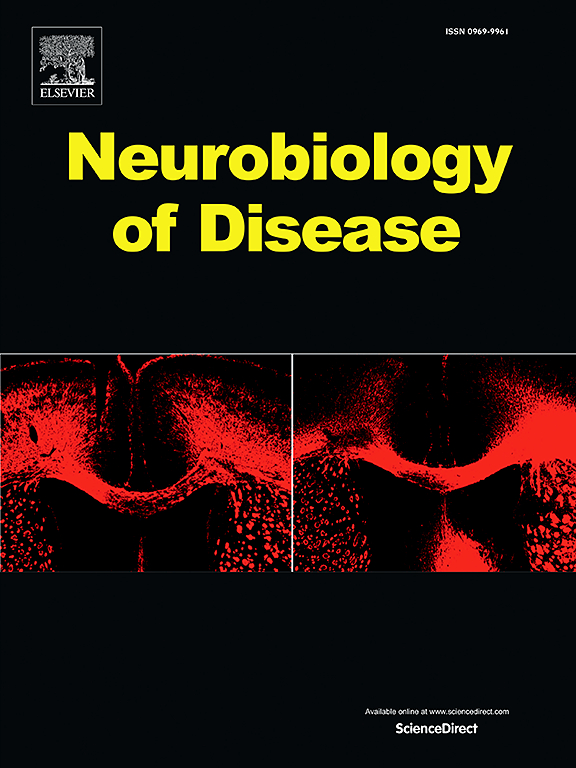Activation of PDE2A moderates pathologically high cAMP/PKA responses to dopamine in dyskinetic mice
IF 5.6
2区 医学
Q1 NEUROSCIENCES
引用次数: 0
Abstract
Dopamine depletion in Parkinson's disease (PD) leads to severe motor and cognitive disturbances. While L-DOPA replacement therapy efficiently alleviates the motor symptoms, it leads to long-term complications, notably dyskinesia. These deregulations are closely associated with an exacerbated cAMP/PKA signaling and alterations in striatal plasticity. In this study we used genetically encoded biosensors to monitor cAMP and PKA signals in the 6-OHDA mouse model of Parkinson's disease. In these mice cAMP levels and PKA signaling were markedly up-regulated. We observed that stimulation of the cGMP signaling by a NO donor, DEANO, efficiently down-regulated the amplitude of these hypersensitive responses and this regulatory effect was mediated by PDE2A. Indeed, the stimulation of PDE2A by cGMP was found to efficiently reduce the excessive cAMP/PKA signaling triggered by D1 receptor stimulation, and this, despite unaltered PDE2A expression. These findings strongly suggest that boosting PDE2A activity in the striatum would be of therapeutic value to moderate the excessive cAMP/PKA responses and mitigate the long-term changes in striatal neurons associated with the adverse effects of L-DOPA treatment.
PDE2A的激活可调节运动障碍小鼠对多巴胺的病理高cAMP/PKA反应。
帕金森病(PD)的多巴胺耗竭导致严重的运动和认知障碍。虽然左旋多巴替代疗法有效地缓解了运动症状,但它会导致长期并发症,特别是运动障碍。这些失调与cAMP/PKA信号的加剧和纹状体可塑性的改变密切相关。在本研究中,我们使用基因编码的生物传感器来监测6-OHDA帕金森病小鼠模型中的cAMP和PKA信号。在这些小鼠中,cAMP水平和PKA信号明显上调。我们观察到,一氧化氮供体DEANO刺激cGMP信号可以有效下调这些超敏反应的幅度,而这种调节作用是由PDE2A介导的。事实上,cGMP对PDE2A的刺激被发现有效地减少了D1受体刺激引发的过量cAMP/PKA信号,尽管PDE2A的表达没有改变。这些研究结果强烈提示,提高纹状体PDE2A的活性对于调节过度的cAMP/PKA反应和减轻与左旋多巴治疗相关的纹状体神经元的长期变化具有治疗价值。
本文章由计算机程序翻译,如有差异,请以英文原文为准。
求助全文
约1分钟内获得全文
求助全文
来源期刊

Neurobiology of Disease
医学-神经科学
CiteScore
11.20
自引率
3.30%
发文量
270
审稿时长
76 days
期刊介绍:
Neurobiology of Disease is a major international journal at the interface between basic and clinical neuroscience. The journal provides a forum for the publication of top quality research papers on: molecular and cellular definitions of disease mechanisms, the neural systems and underpinning behavioral disorders, the genetics of inherited neurological and psychiatric diseases, nervous system aging, and findings relevant to the development of new therapies.
 求助内容:
求助内容: 应助结果提醒方式:
应助结果提醒方式:


